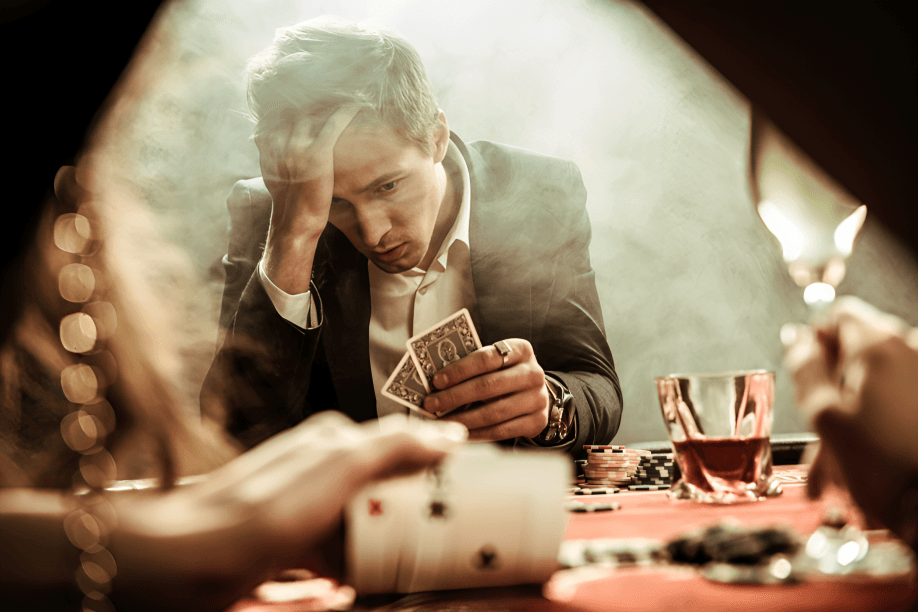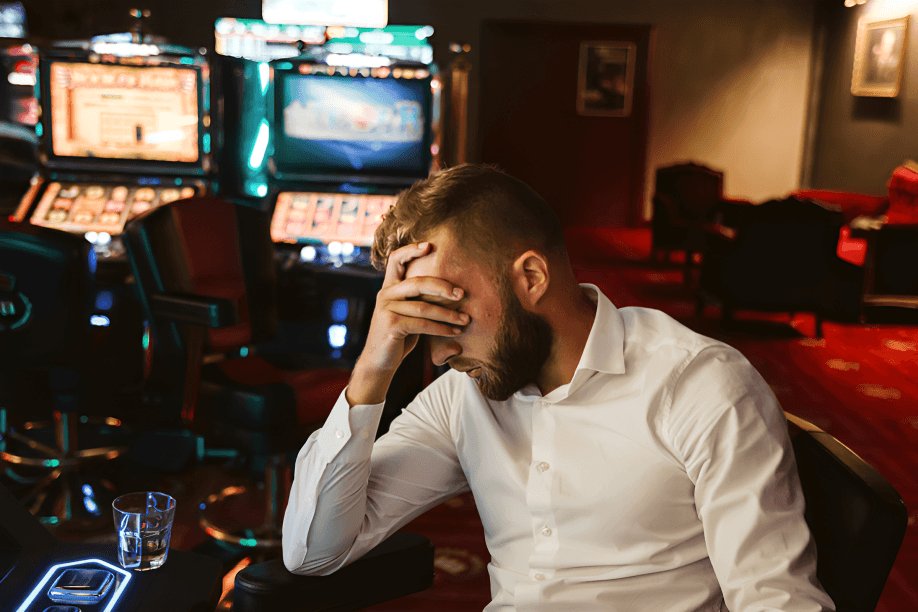
“
Gambling and mental health are closely linked, with gambling addiction leading to severe psychological consequences. Understanding how gambling affects mental health is crucial for prevention and treatment, highlighting the need for early intervention and support.1
1
”
Gambling addiction can lead to severe stress and anxiety, with individuals often feeling a constant sense of dread. This persistent mental strain may reduce the ability to cope with everyday life. 1
Problem gambling is linked to depression, as the emotional toll of losing money can lead to feelings of hopelessness and sadness, which exacerbate symptoms of depression and cause a downward spiral. 2

Individuals who struggle with gambling are more likely to experience feelings of shame and guilt, which negatively affect their self-esteem. Over time, these negative emotions can worsen mental health.
Chronic gambling can impair a person’s ability to concentrate and focus, as the mental energy devoted to gambling thoughts may interfere with work or personal relationships, leading to cognitive issues and frustration. 3
Gambling addiction often correlates with a higher risk of suicide. The emotional and financial burden can overwhelm individuals, making them feel as though there’s no way out of their situation. 4
Research has shown that those suffering from gambling addiction are more prone to irritability and mood swings. These emotional fluctuations can affect their relationships, work performance, and overall quality of life. 5
The constant gambling cycle of winning and losing can lead to distorted thinking patterns. People may develop an overinflated sense of control, leading to delusional beliefs and further damaging mental health. 6
For many gamblers, the desire for excitement and instant gratification masks deeper emotional issues such as trauma or low self-worth, which often go untreated and worsen mental health over time. 7
Gambling can lead to financial ruin, which compounds the mental stress of individuals, leading to anxiety, depression, and even feelings of worthlessness when they realize the extent of their losses. 8
Compulsive gambling can result in social isolation, as individuals may withdraw from loved ones due to embarrassment or fear of judgment. This lack of support worsens mental health and deepens the addiction. 9

Problem gambling can create chronic stress responses in the body, leading to physical health issues like insomnia and digestive problems. These physical symptoms often go hand-in-hand with mental health decline.
Those with gambling addictions may experience intense feelings of regret and self-blame. These emotions can worsen pre-existing mental health conditions and create a vicious cycle of negative thoughts and feelings. 10
Gambling addiction often leads to relationship breakdowns, as partners and family members struggle to cope with the deceit, betrayal, and emotional turmoil that accompany a gambling disorder. 11
The act of hiding gambling habits from others can lead to increased anxiety. The fear of being discovered heightens stress and contributes to feelings of isolation, making it harder for individuals to seek help. 12
Excessive gambling may be linked to impulsive behaviors. This impulsivity can lead to poor decision-making in other areas of life, which can worsen emotional instability and negatively affect mental health. 13
When gambling, individuals may escape from real-world problems, but this avoidance strategy worsens mental health in the long term by preventing them from confronting the underlying emotional issues causing distress. 14

The repetitive nature of gambling and the pursuit of "the big win" can contribute to addictive behavior, leading to emotional numbness and a lack of fulfillment, ultimately worsening mental health and well-being.
Gamblers often experience a cycle of euphoria followed by regret, which creates emotional instability. This emotional rollercoaster can contribute to feelings of anxiety and depression, further harming mental health. 15
Feelings of hopelessness and despair often accompany gambling addiction. As losses mount, individuals may feel trapped, believing there is no way out, which deepens feelings of depression and anxiety. 16
The financial fallout from gambling addiction can lead to feelings of guilt and low self-worth, which makes it difficult for individuals to reach out for help, further exacerbating mental health challenges. 17


